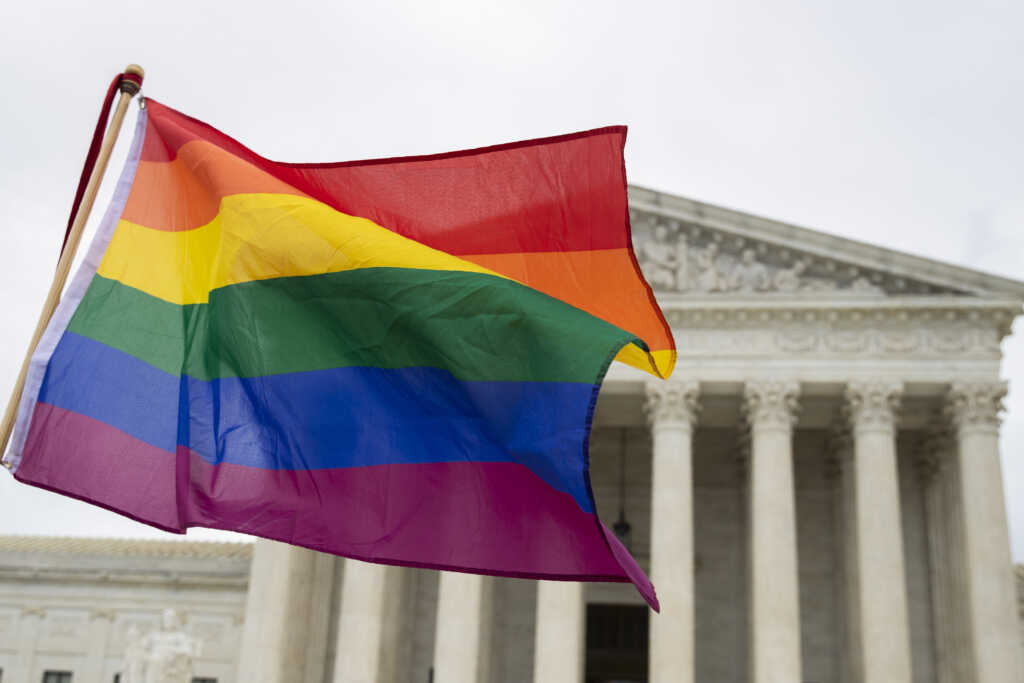The U.S. Supreme Court has delivered a major victory for a Christian graphic artist who declined to design wedding websites for same-sex couples because it violated her religious beliefs.
The court ruled 6-3 on Friday in favor of designer Lorie Smith. She had been trapped in a dispute over a Colorado law barring discrimination based on sexual orientation, race, gender, and other characteristics. Smith argued the law violates her free speech rights.
“I have been hoping and praying for this day for many, many years,” Smith said in a video recently. “My case is important to all Americans, including artists, like myself. It’s important that our First Amendment rights for free speech are protected.”
Listen to the latest episode of CBN’s Quick Start podcast 👇
The 10th U.S. Circuit Court of Appeals had ruled last July that Smith had to design wedding websites for same-sex couples. Smith wanted to move into the wedding space but quickly found out that Colorado law required her to create sites that did not align with her biblical belief that marriage is the union of one man and woman.
The Alliance Defending Freedom represented Smith in her case before the Supreme Court.
“The U.S. Supreme Court rightly reaffirmed that the government can’t force Americans to say things they don’t believe. The court reiterated that it’s unconstitutional for the state to eliminate from the public square ideas it dislikes, including the belief that marriage is the union of husband and wife,” said ADF CEO, President, and General Counsel Kristen Waggoner. “Disagreement isn’t discrimination, and the government can’t mislabel speech as discrimination to censor it.”
Justice Neil Gorsuch wrote for the court’s six conservative justices that the First Amendment envisions a United States where people are “free to think and speak as they wish.”
“The First Amendment’s protections belong to all, not just to speakers whose motives the government finds worthy,” Gorsuch wrote.
He added, “Consistent with the First Amendment, the Nation’s answer is tolerance, not coercion. The First Amendment envisions the United States as a rich and complex place where all persons are free to think and speak as they wish, not as the government demands. Colorado cannot deny that promise consistent with the First Amendment.”
The ruling could pave the way for protections for people of faith who want to opt out of providing services that promote messages that violate their religious convictions.
Smith’s opponents claimed a win for her would allow a range of businesses to discriminate against customers.
Justice Sonia Sotomayor wrote a dissent that was joined by the court’s other liberals. “Today, the Court, for the first time in its history, grants a business open to the public a constitutional right to refuse to serve members of a protected class,” Sotomayor wrote.
Smith maintains that it is not about discrimination but rather adhering to her Christian faith and values.
“I’ve always wanted to create custom artwork for weddings, ever since I was a little girl,” the owner of 303 Creative previously told CBN News.
“When my clients come to 303 Creative, what they can expect is someone who cares and has a passion for their business as well,” Smith said. “Each and every one of my (designs) is a reflection of me.”
Smith left the corporate world to create her own business and pursue her passion for creating designs for specific causes. Given her traditional beliefs, she hesitated to include weddings in the services she offered after seeing how the state penalized baker Jack Phillips for declining to create a cake celebrating a same-sex wedding ceremony.
The high court issued a limited ruling in favor of the baker five years ago saying there had been impermissible hostility toward his religious views in the consideration of his case.
Waggoner represented both Philips and Smith in their separate cases before the high court.
“Lorie works with everyone, including clients who identify as LGBT,” Waggoner said after the recent ruling. “As the court highlighted, her decisions to create speech always turn on what message is requested, never on who requests it. The ruling makes clear that nondiscrimination laws remain firmly in place, and that the government has never needed to compel speech to ensure access to goods and services.”
“This is a win for all Americans,” Waggoner added. “The government should no more censor Lorie for speaking consistent with her beliefs about marriage than it should punish an LGBT graphic designer for declining to criticize same-sex marriage. If we desire freedom for ourselves, we must defend it for others.”
***As the number of voices facing big-tech censorship continues to grow, please sign up for Faithwire’s daily newsletter and download the CBN News app, developed by our parent company, to stay up-to-date with the latest news from a distinctly Christian perspective.***


